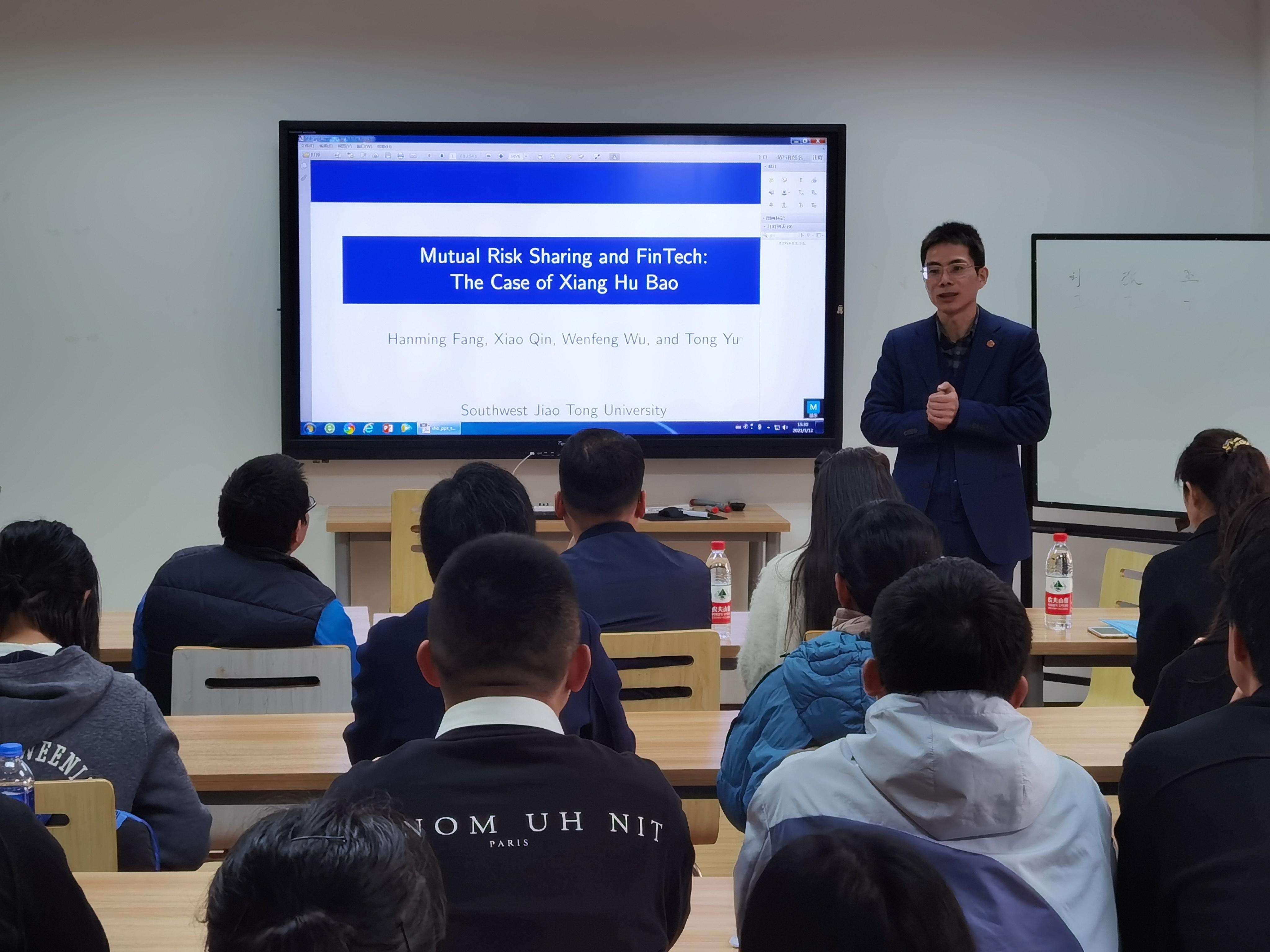In the afternoon of March 11th, 2021, Professor Wu Wenfeng from Shanghai Jiaotong University gave a wonderful academic lecture to the teachers and students of the School of Economics and Management.
As the deputy dean of the Antai College of Economics and Management, Shanghai Jiaotong University, Professor Wu Wenfeng, the winner of the first batch of National Outstanding Youth Science Fund projects, and the first batch of Yangtze River Scholars Youth Project of the Ministry of Education, has devoted himself to financial research for many years, and also served as the "China Financial Review" Editor-in-chief, with plentiful academic achievements and outstanding achievements.

In the expectation of everyone, Professor Wu Wenfeng started this lecture with a relaxed tone. He first asked whether everyone had used "XiangHuBao(XHB)" and whether they understood its operating mechanism. In a lively atmosphere, he led to the research theme of his thesis-common risk sharing and financial technology: taking "XHB" as an example.
Professor Wu briefly introduced the research background following everyone's ideas. With the development of financial technology, the risk-sharing model of "XHB" has entered people's field of vision. It has developed rapidly in recent years and has been widely accepted, and becomed a new way to deal with disease risks.
Different from the post-event reimbursement system implemented by traditional insurance, "XHB" implements a model in which applicants are classified according to their personal characteristics, and a fixed amount of assistance is given to each level, and all payments are shared equally by all participating users. Under such circumstances, questions such as what is the difference between "XHB" and traditional critical illness insurance, and what people's tendency to choose will arise. This is exactly what Mr. Wu's research wants to understand.

Next, Professor Wu introduced the model construction and empirical part of the article. This part is the core part and key difficulties of the whole article. Professor Wu explained in plain and popular language. First, he made a detailed description of the respective characteristics and pros and cons of "XHB" and Critical Illness Insurance, and then built models and predictions based on this, and used Ant Financial's survey data of "XHB" participants Examining the predictions further revealed the motives of the participants in this common risk-sharing project, step by step putting scientific facts in front of everyone.
Finally, relying on data and graphs as a visual display, Professor Wu showed everyone the results of this article. Compared with critical illness insurance, the common risk-sharing project has lower fees and is accompanied by a lower loss rate. In addition, through regression analysis, it is also found that people in economically developed areas are more likely to participate in mutual assistance programs, young people are more willing to participate in mutual assistance programs than the elderly, and high-income groups are more willing to participate than low-income groups.

At the end of Professor Wu’s academic lecture, he interacted with the teachers and students of our school. The teachers and students of SEM actively consulted him on the positioning, supervision, and decision-making mechanism of the “mutual treasure”. Professor Wu answered one by one. Everyone present at the meeting felt very benefited from his answers. So far, the lecture ended successfully with the warm applause of the students.

